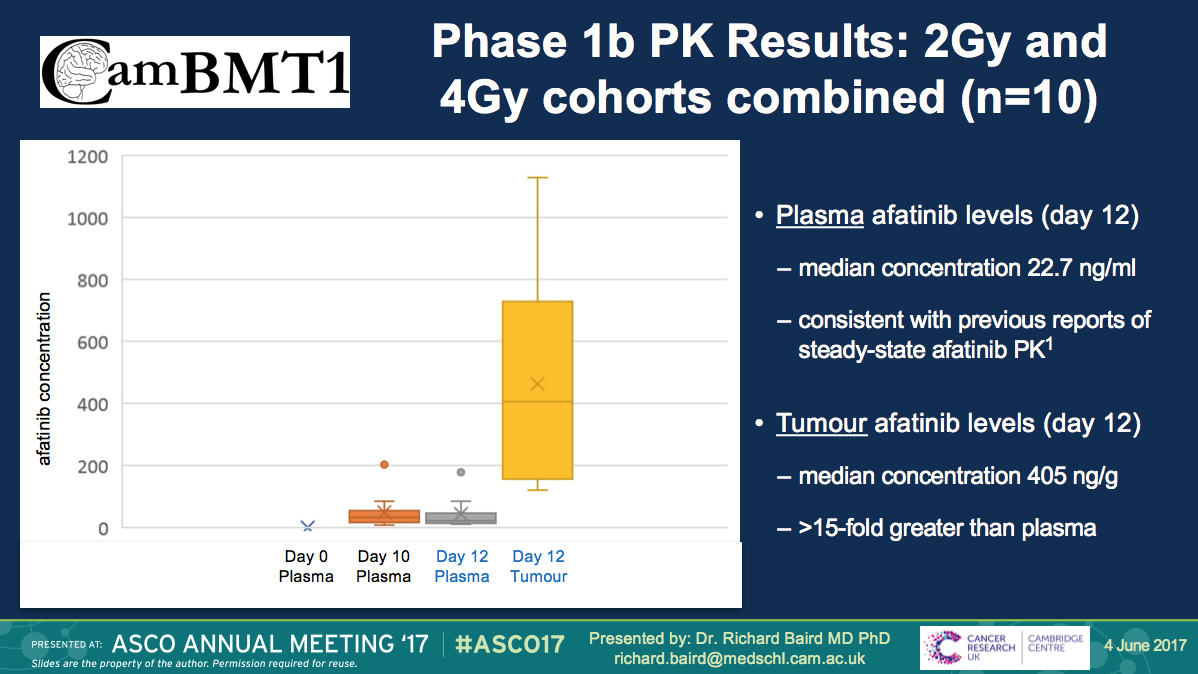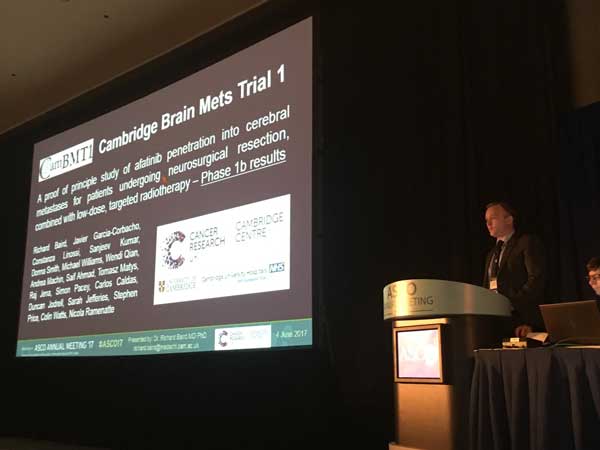
Researchers in Cambridge report promising progress in trying to find a better way of treating patients whose breast or lung cancer has spread to their brain. When cancer has spread to the brain from another part of the body, it is called a secondary, or metastatic, tumour.
A major challenge for the drug treatment of metastatic brain cancer is the blood brain barrier, which can prevent medicines getting from the bloodstream into a tumour. The blood brain barrier is a semipermeable membrane that separates the circulating blood from the brain, acting as a filter that only certain substances can pass through. This usually protects the brain from disease but it can also stop drug treatments from reaching the brain.
Richard Baird, an Academic Consultant in Experimental Cancer Therapeutics in the CRUK Cambridge Centre Early Phase Clinical Trials team wanted to find out whether giving a low dose of radiotherapy at the same time as drug treatment would help the medicine get through the blood brain barrier.
He and his colleagues set up a small trial, called the CamBMT1 trial, to test whether a single, targeted, low dose of radiotherapy might help the drug afatinib overcome the blood brain barrier and penetrate properly into metastatic brain tumours. Afatinib is a targeted therapy treatment. It works by blocking particular proteins that are found in unusually large quantities on the surface of cancer cells causing uncontrolled growth.
Although it’s early days, the results from a small number of patients who have already taken part in the trial show that, following radiotherapy treatment, high levels of afatinib passed through the blood brain barrier into the tumour. Phase 2 of the trial is now underway and is testing in larger numbers of patients how big the effect of radiotherapy is, and which dose of radiotherapy works best with the cancer drug.
CamBMT1 results showing higher levels of afatinib in brain compared with plasma, following low-dose targeted radiotherapy treatment
Dr Baird said, “Patients with brain metastases have for too long had limited treatment options. These preliminary results from CamBMT1 are exciting, and encourage us as we proceed with recruitment to the randomised phase 2 part of the trial. This will answer directly whether or not radiotherapy can help facilitate better drug delivery into patients with brain metastases. Research like this is a testament to the close collaboration between many teams here in Cambridge, and in other UK Experimental Cancer Medicine Centres".
Dr Richard Baird presenting the results of Cambridge Brain Mets Trial 1 at the American Society of Clinical Oncology (ASCO) Annual Meeting in Chicago on 4 June.
CamBMT1 is an investigator-initiated trial funded by Cancer Research UK, The Brain Tumour Charity and Boehringer-Ingelheim, together with infrastructure support from the Cambridge Experimental Cancer Medicine Centre (ECMC) and NIHR Biomedical Research Centre (BRC).

















